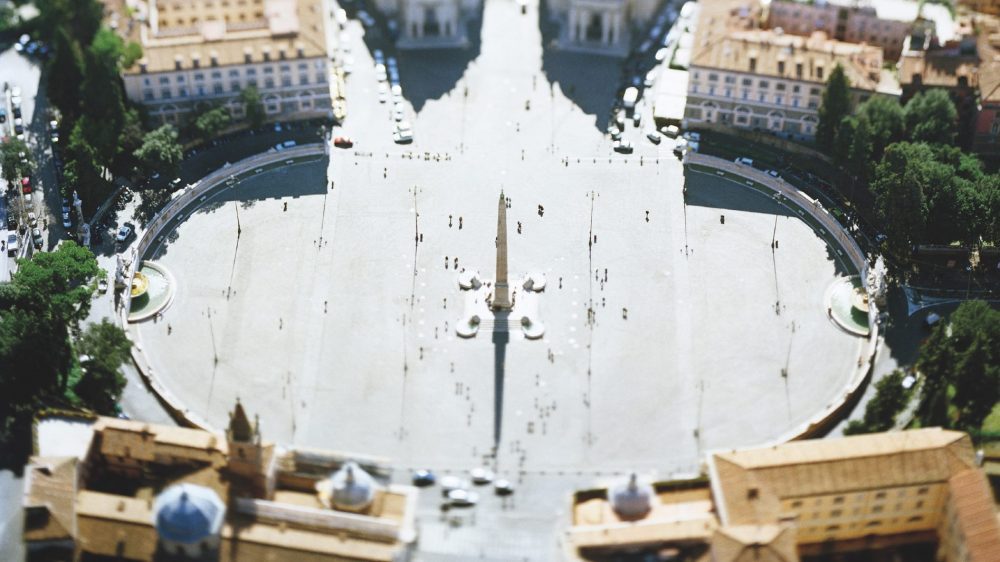-
- contrast
-
- A-
- A
- A+

Od-Nowa Huta updates the views on Nowa Huta, taking into account its past and evolution, which it has experienced so far, and the one that is yet to come. It presents Nowa Huta against the backdrop of a broader experience of modernity, both engaged by authoritarian regimes, but also in the context of post-industrial evolution, which has largely become an experience shared by many European cities over the past 30 years, for which Nowa Huta works as an mirror. Od-Nowa Huta analyzes European paths by discussing the district of Krakow against the backdrop of pre-war Rome or post-industrial Bilbao. Re-Nowa Huta follows the scenarios of gentrification that have irrevocably marked the centers of many European cities, without sparing Krakow, at the same time anticipating potential paths of the further evolution of the district in search of its new economic, social and artistic functions.
Contrary to the top-down scenarios that determined the creation of the district, Od-Nowa Huta reverses the perspective, especially taking into account the social one.
What does Nowa Huta community experience today and how can the common voice of the inhabitants determine the development and evolution of the city? On 25th of September, two days of expert panels will find their continuation in connected cultural activities.
Experts from 6 countries that make up the EUNIC cluster in Krakow will lead the discussions, sharing the experiences of their home countries that can be applied in Nowa Huta.
24.09.2021
17:00-18.45
“Seductive or frightening? The gentrification and revitalization of contemporary cities of Poland, Germany and Austria”
speakers:
Robert Huber
Christian Hanus
Jacek Gądecki
moderator – Michał Wiśniewski
Within the last four decades, cities in Europe saw a dramatic shift in the economy and social life. De-industrialization pushed the entire metropolitan area into a new direction of economic and social development based on services, high mobility and frequent change. Forced to compete for investments and tourists, cities started to build their brands and develop their visibility. One of the results of this model was linked with the rise of the real estate market and deep changes in the social structure of historic city centres. The postindustrial transformation that occurred in Western Europe already during the 1980s today plays a crucial role in the development of Central and Eastern European cities as well. The city of Krakow with its still growing tourism market and its highly gentrified city centre is the perfect place for research and observation dedicated to the results of postindustrial change and the contemporary model of city development. The panel aims to discuss the nature of this change and look at Nowa Huta as a place that – despite its proximity to Krakow city centre – has still kept its genuine flavour of the 1950s industrial settlement. The guest speakers will discuss case studies from Germany and Austria as well as the changes that have taken place in the life of Nowa Huta so far.
18:45-20:30
“Bilbao Effect – Nowa Huta”
speaker:
José Miguel Fernández Güell
moderator – Diego Llorente Domínguez
The steel industry was the economic base of both Bilbao and Nowa Huta, a risky bet on the basis of which both cities were consolidated and a cause of their problems in times of lower demand in the sector.The urban planner Jose Miguel Güell, a key element of the Bilbao Strategic Plan – together with the Spanish architect Diego Llorente living in Poland – will try to explain the reasons why the “Bilbao Effect” is a global benchmark in contemporary urban planning.Jose Miguel Güell will be able to explain first-hand how this ambitious plan was conceived from the very beginning and what its effects are today.We will analyze the consequences that each decision in the urban area has for our cities and therefore for our lives. How the chosen model, its mistakes and successes determine the identity of the city and ours.
Discussions will be translated into Polish.
Number of participants is limited, please book your place at rezerwacja@domutopii.pl
Tables of debate to be held on September 23-24th at the Utopia Home – International Empathy Centre, initiated and implemented jointly by the Instituto Cervantes, Institut français de Pologne, Istituto Italiano di Cultura, Bureau Wallonie-Bruxelles à Varsovie, Goethe-Institut, Österreichisches Generalkonsulat Krakau with the strategic support of EUNIC, will be preceded by an exhibition organized by Institut français de Pologne à Cracovie and Istituto Italiano di Cultura Cracovia (available for public from September 7th). Pandemic panoramas of depopulated city squares in Italian cities, hiding their actual life behind the walls, will be juxtaposed with the historical photographs presenting the crowds filling the streets of Nowa Huta in a gesture of social solidarity.
assisting events:
exhibition “In Front of and Behind the Curtain – Scenarios of Social Solidarity”: Utopia Home – International Empathy Centre (23.09 – 3.10.2021)
“Concert of Wishes” spectacle by Yana Ross with Danuta Stenka – Łaźnia Nowa Theater 25.09.2021 18.00 / 20.30
organizers Od-Nowa Huta: Instituto Cervantes, Institut français de Pologne, Istituto Italiano di Cultura, Bureau Wallonie-Bruxelles à Varsovie, Goethe-Institut, Österreichisches Generalkonsulat Krakau przy strategicznym wsparciu EUNIC
EUNIC (The European Union National Institutes for Culture) is a Brussels based network of European national cultural institutes and other public organizations engaged in cultural activities outside their country aiming to promote European culture and languages. EUNIC brings together organizations from all 27 Member States of the European Union. By pooling the resources and expertise of its members, conducts work in common areas of interest, supporting the definition and implementation of a European cultural policy for culture in the EU and beyond.
cooperation: Łaźnia Nowa Theatre / Utopia Home – International Empathy Centre